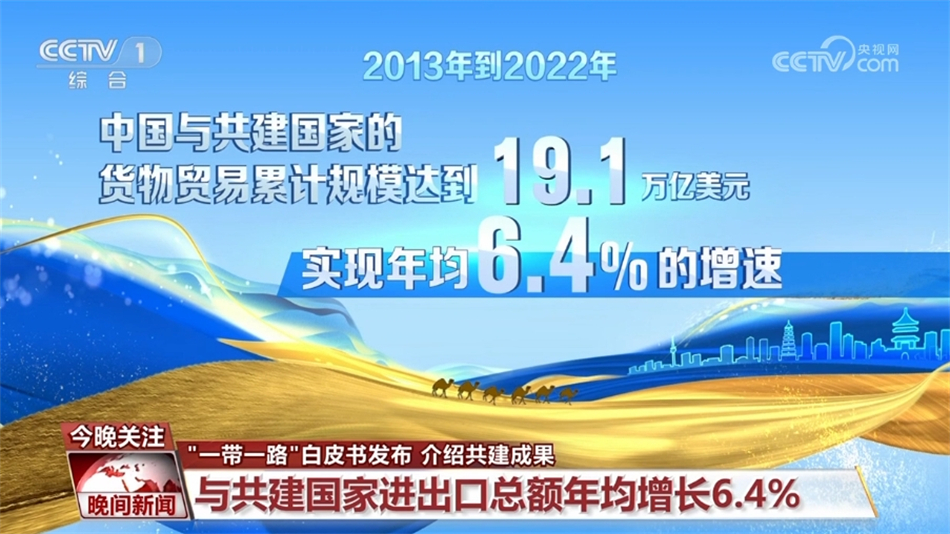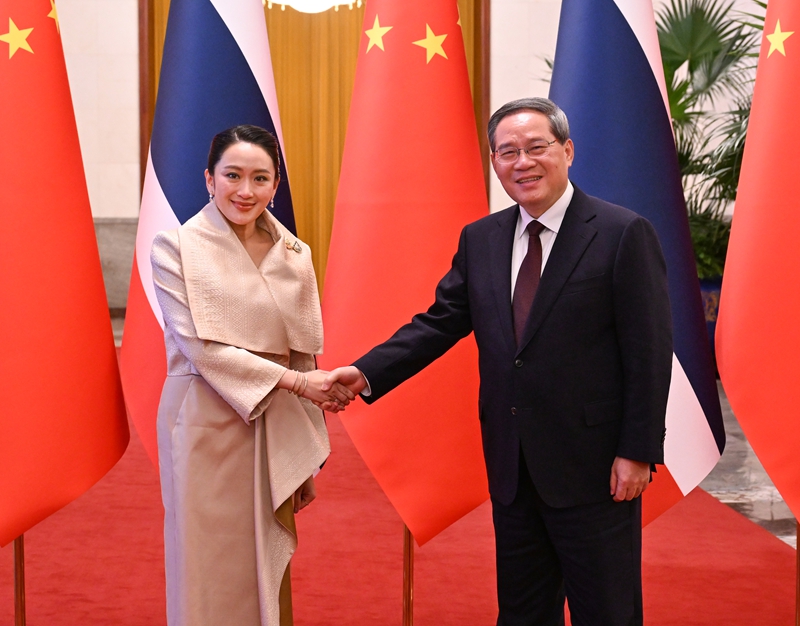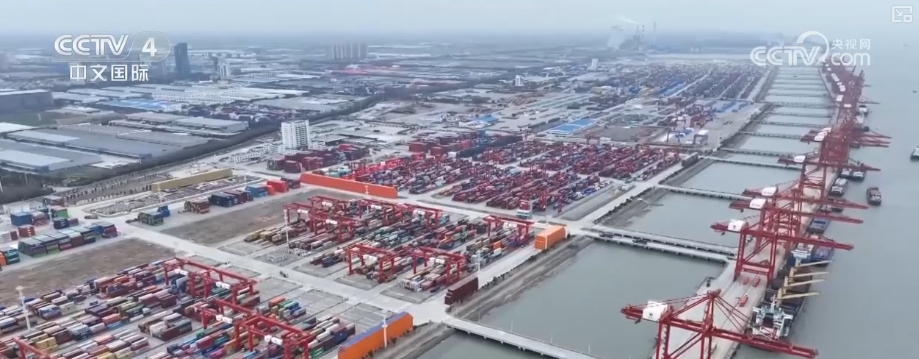Reform And Improve Global Governance To Safeguard International Fairness And Justice
Reform And Improve Global Governance To Safeguard International Fairness And Justice
In August, farmers felt the joy of a bumper harvest at the Dragon Fruit Demonstration Base of the China-Laos Cooperation Crop Variety Experiment Station in Vientiane, Laos.

In August, farmers felt the joy of a bumper harvest at the Dragon Fruit Demonstration Base of the China-Laos Cooperation Crop Variety Experiment Station in Vientiane, Laos.
Photo by Su Peng, Asia Pacific Center Branch of this newspaper
Wang Fan (Dean of the China Foreign Affairs University and Director of the Research Center for a Community with a Shared Future for Mankind)
Busani Ngkaweni (President of the National Academy of Administration of South Africa)
Marta Fernandez (Director of the BRICS Policy Research Center in Brazil)
Antonio Segura (Director of Spanish Zhihua Lecture Hall, human rights and legal expert)
In 2015, President Xi Jinping proposed the global governance concept of extensive consultation, joint contribution and shared benefits. In 2025, at the "Shanghai Cooperation Organization " conference, President Xi Jinping proposed a global governance initiative. Over the past 10 years, China has been an active promoter of reforming and improving the global governance system. The deepening of concepts and the expansion of practice outline China's firm steps towards building a community with a shared future for mankind. This issue specially invites four authoritative experts at home and abroad to jointly interpret the evolution of China’s global governance vision and the value of the times.
Inherit and develop the spirit of the United Nations Charter, safeguard the post-war international system and international order, and reflect the demands of developing countries for fairness and justice.
Wang Fan: President Xi Jinping proposed a global governance concept of extensive consultation, joint contribution and shared benefits, advocating that the destiny of the world is jointly controlled by all countries, international rules are jointly written by all countries, global affairs are jointly managed by all countries, and development results are shared by all countries. It promotes equal rights, equal opportunities and equal rules for all countries, clarifying the basic principles and pointing the way forward for the reform of the global governance system. This year, at the important historical node of the 80th anniversary of the victory of the Chinese People’s War of Resistance Against Japanese Aggression and the World Anti-Fascist War and the 80th anniversary of the founding of the United Nations, President Xi Jinping’s global governance initiative is a powerful response to the challenges facing the current global governance system. This major initiative aroused enthusiastic response, and more than 140 countries and international organizations quickly expressed their welcome and support.
Currently, the international community is facing multiple challenges. Cold War mentality, hegemonism, unilateralism, and protectionism are on the rise. The purposes and principles of the United Nations Charter have been repeatedly eroded. Countries in the Global South are underrepresented. There is a lack of rules in areas such as climate change, digital divide, and artificial intelligence governance. The Global Governance Initiative responds to specific pain points in the global governance system and resolves a series of structural contradictions. Its historical significance lies in inheriting and developing the spirit of the United Nations Charter, safeguarding the post-war international system and international order, and providing Chinese solutions for the reform of the global governance system. Its practical significance lies in reflecting the demands of developing countries for fairness and justice, promoting the evolution of the international order in a more democratic and inclusive direction, and promoting world peace and development.
Marta Fernandez: To understand global governance initiatives, we should place them in the context of violent turmoil and profound changes in the international order. The world today is not peaceful. Many places around the world are mired in armed conflicts. The tragedy in the Gaza Strip is particularly shocking. Famine has been used as a weapon of war. Multilateralism is facing a serious crisis. Power politics and hegemonic behavior not only intensify confrontation between countries, but also erode the internal operation of international mechanisms, posing severe challenges to the post-war international order. So far, the United States has the largest veto power on major issues with its largest share of voting rights in the International Monetary Fund. At the same time, as the largest shareholder of the World Bank, it has dominant power through the appointment of the president.
The importance and urgency of promoting reform of the global governance system are self-evident. Reform must give full play to the important role of the United Nations, be based on multilateral frameworks, and truly reflect the diversity of the world. The proposal of the global governance initiative is fully consistent with this demand and reflects the demands of the international community, represented by countries in the global South, for a fairer and more inclusive international order.
Antonio Segura: The postwar international order is experiencing unprecedented impact and reconstruction. On the one hand, individual countries are trying to break away from the framework of the United Nations Charter and the constraints of international law and pursue unilateral hegemonism; on the other hand, emerging market countries and developing countries are rising as a group, with increased economic strength and political status, and an increasingly strong awareness of independent and equal development. As Chinese wisdom reveals - there is opportunity in crisis. This structural contradiction and collision provides a historic opportunity for building a more just and reasonable global governance system.
China proposes global governance initiatives to better strengthen the United Nations system and correct its flaws. The "Global Governance Initiative Concept Paper" issued by China pointed out that the current international mechanisms have three major shortcomings: the global South is seriously underrepresented, its authority has been eroded, and its effectiveness urgently needs to be improved. These shortcomings have been repeatedly confirmed in reality. For example, the United States has repeatedly used its veto power in the Security Council, which has prevented countries in the Global South whose sovereignty has been violated from receiving international protection. The Global Governance Initiative emphasizes the need to translate reform demands into practical actions, and its historical and practical significance is particularly prominent. This international public product is exactly what the international community urgently needs at the moment, and it has gathered broad international consensus.
Busani Ngkaweni: The global governance initiative comes at the right time and complies with the common aspirations of people of all countries. 80 years ago, the establishment of the United Nations ushered in a new practice of global governance, using the power of the system to establish principles and mechanisms such as sovereign equality and collective security. However, in recent years, anti-globalization thoughts have prevailed, unilateralism has risen, global challenges have emerged one after another, the purposes and principles of the United Nations have not been effectively observed, unilateral sanctions and other actions violate international law and undermine the international order, and the authority and credibility of international mechanisms continue to weaken. The Global Governance Initiative confronts the chronic diseases of the international order, opposes hegemonism and power politics, and provides strong support for developing countries to fight for their rights and interests. This initiative demonstrates China's responsibility as a responsible major country to work with all parties to meet challenges, build peace, and share prosperity.
Solve problems through dialogue and consultation, use improving people's lives as the yardstick for effectiveness, and promote all parties to jointly build an international order based on justice, inclusiveness and dignity.
Wang Fan: The global governance initiative has injected new ideas and new connotations into reforming and improving the global governance system. The five core concepts of the initiative are rich in connotation and interrelated, and their vitality lies in transforming concepts into actions. Specifically, the initiative takes sovereign equality as the primary prerequisite for global governance, emphasizing that all countries, big or small, strong or weak, have the right to participate in global governance on an equal footing. For example, the Shanghai Cooperation Organization promotes cooperation between member states in the fields of counter-terrorism, energy, and drug control, becoming a model of multilateralism; international rule of law is the fundamental guarantee, and it puts forward requirements Maintain and abide by the purposes and principles of the United Nations Charter, oppose double standards and impose the "house rules" of a few countries on others. For example, China and 32 countries jointly established the International Mediation Court, which established a new mechanism for the peaceful settlement of disputes; practice multilateralism as the basic path, uphold the principle of consultation, joint contribution and shared benefits, and advocate all countries to strengthen collaboration and joint participation. With global affairs, for example, after the expansion of the BRICS, its member countries cover nearly half of the world's population, and their combined GDP accounts for 29% of the world, becoming an important platform for South-South cooperation; people-oriented is the value orientation, and the initiative pursues people's sense of gain, happiness, and security, and puts people's livelihood and well-being at the core of governance For example, China upholds the principle of extensive consultation, joint contribution and shared benefits in high-quality joint construction of the Belt and Road Initiative, and its results have benefited the people of more than 150 countries. It also focuses on action-oriented principles, emphasizing pragmatic cooperation and avoiding empty talk. For example, China actively helps countries in the Global South to further enhance their development capabilities through agricultural assistance, green projects, etc.
Busani Ngkaweni: The Global Governance Initiative systematically elaborates on the principles, methods and paths for improving global governance. The initiative emphasizes the practice of true multilateralism, opposes all forms of "small circle" politics and selective multilateralism, and adheres to the global governance concept of extensive consultation, joint contribution and shared benefits. China fully supports South Africa in successfully hosting the 15th BRICS leaders' meeting, and jointly promotes the historic expansion of BRICS membership, taking an important step towards world multipolarity. Chinese people often say that "the people are the foundation of the country, and the country will be in peace if the foundation is strong." This means that the people are the foundation of a country's stability. The Global Governance Initiative advocates "people-oriented" and deeply integrates people's interests with world peace and development, emphasizing the need to truly benefit people of all countries and allow the results of global governance to benefit every country, every nation, and everyone more equitably. This is the creative transformation and innovative development of China’s excellent traditional culture in contemporary global affairs.
Marta Fernandez: The Global Governance Initiative combines the insistence on sovereign equality, international rule of law and multilateralism with the pursuit of people-centered and action-oriented, and combines the relations between countries and the connections between people. It reflects a vision of global governance with dignity and justice as its core. This is exactly what the global South urgently needs at the moment, and it coincides with the practice of many countries in promoting world peace and development. In 2024, Brazil and China jointly launched the "Friends of Peace" group initiative at the United Nations to demonstrate through action that dialogue is the only feasible way to resolve conflicts. The Global Governance Initiative is committed to solving problems through dialogue and consultation, using improving people's lives as the benchmark for effectiveness, and promoting all parties to jointly build an international order based on justice, inclusiveness and dignity.
Antonio Segura: During the 2025 Shanghai Cooperation Organization Summit, participating countries jointly witnessed the proposal of global governance initiatives. The necessity of changing the international order has been clearly explained, and the ideological depth of the initiative has been demonstrated.
The four major global initiatives have jointly formed a closed loop of "development-security-civilization-governance" to provide solid support for building a community with a shared future for mankind.
Antonio Segura: China's governance has always been based on long-term development, guided by scientific thinking, upholding the practical philosophy of seeking truth from facts and integrating knowledge and action, and advancing with the times through self-innovation. This is the underlying logic behind China’s steady and far-reaching development and historic achievements. The global governance initiative is a natural extension of China's governance philosophy in the international dimension. Together with the global development initiative, global security initiative, and global civilization initiative previously proposed by China, it clarifies the direction and principles for promoting the transformation of the global governance system.
Wang Fan: The four major global initiatives each have their own focus and work together. The Global Development Initiative promotes international development cooperation, the Global Security Initiative focuses on resolving international disputes through dialogue and consultation, the Global Civilization Initiative is committed to promoting exchanges and mutual learning among civilizations, and the Global Governance Initiative anchors the reform direction of global governance systems and mechanisms. For example, in response to climate change, the Global Development Initiative supports the construction of the green Belt and Road Initiative, the Global Security Initiative coordinates disputes over climate financing, and the Global Governance Initiative can promote the resolution of international governance problems with the help of various continuously enriched and improved multilateral mechanisms, such as the International Mediation Court mechanism to resolve conflicts in rules such as "carbon tariffs" and build multi-level solutions. The four major global initiatives have jointly formed a closed loop of "development-security-civilization-governance", providing solid support for building a community with a shared future for mankind and injecting strong impetus into the cause of human peace and development.
Marta Fernandez: There can be no lasting peace where poverty persists, just as there can be no stable development where there is war. Countries in the Global South firmly believe that justice and stability are closely linked, and efforts to eliminate structural asymmetries are the cornerstone of building a stable order. The significance of the four global initiatives is that they echo the long-standing belief in the Global South that peace and development are inextricably linked. Peace cannot be achieved through force or coercion, but must be based on respect for the diversity of civilizations and dialogue. The Global Civilization Initiative is committed to promoting cross-cultural dialogue and cross-civilization exchanges. When combined with global governance initiatives, it can effectively promote the rebirth of traditional cultures that have been marginalized or stigmatized, generate breakthrough solutions, and promote a more balanced and sustainable development in the world.
Busani Ngkaweni: The global governance initiative has received positive response from the international community because it touches on the real practical needs of various countries. For a long time, countries in the Global South have suffered from the injustice of the current international order, such as the delay in fulfilling the commitments of developed countries in terms of climate finance or development assistance. The Global Governance Initiative provides a visible, tangible and measurable platform, a global governance model rooted in fairness, justice and solidarity, and a framework that continues to promote cooperation and development. China has proposed four major global initiatives with its historical responsibility and world sentiment, pointing out a path for the international community to respect sovereignty, safeguard justice, and share development, inject more positive energy from different angles into the chaotic world, and inject more new impetus into human development and progress.
(Interviewed and compiled by our reporters Chen Shangwen, Zheng Xiang, Shi Yuanhao and Yan Huan)
"People's Daily" (page 18, October 21, 2025)





